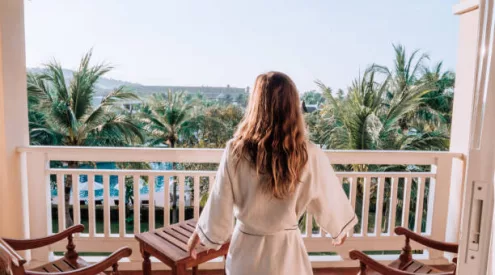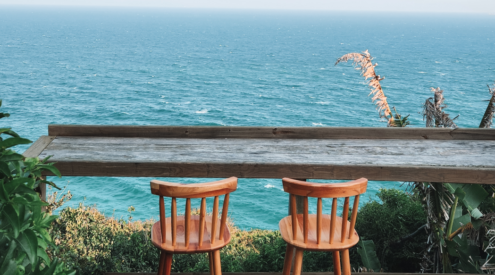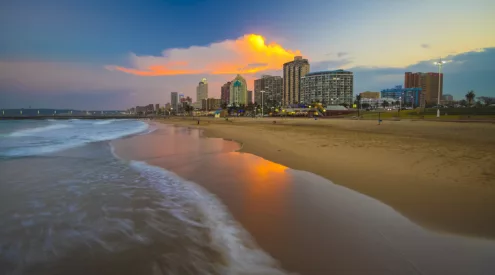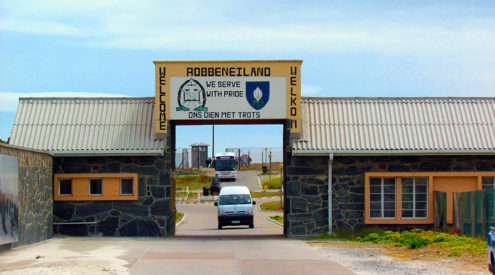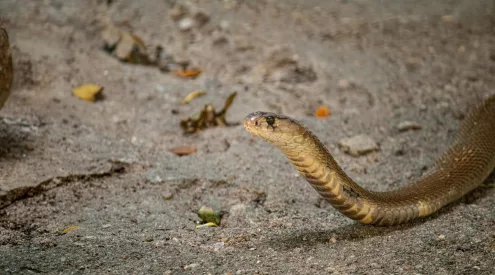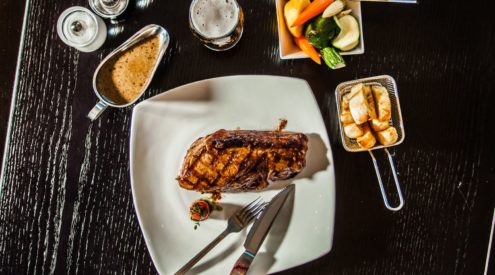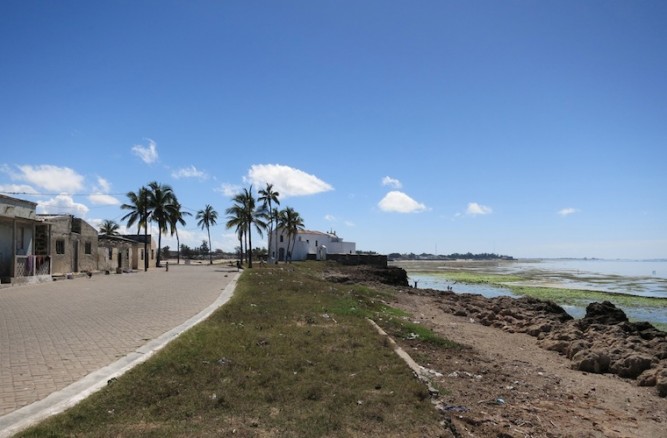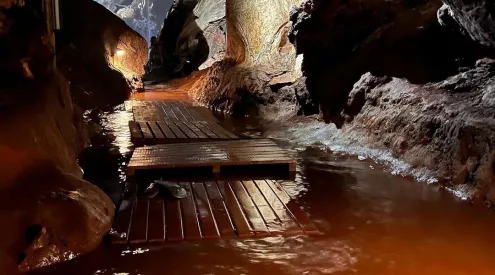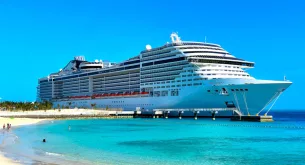While Mozambique isn’t short of islands that serve as popular holiday destinations – the Bazaruto Archipelago and Quirimbas Islands spring immediately to mind – nothing quite matches the faded glory of Ilha de Moçambique (Island of Mozambique). Still populated with the remains of colonial fortresses, churches and mansions tracing their history back for five centuries, a visit to “Ilha” (pronounced “Ilya”, as it’s known by Mozambicans) is a trip in a time machine.

There's a glimpse into the past around every corner on Ilha de Moçambique.
History of Ilha de Moçambique
Ilha de Moçambique was Portugal’s trading and administrative capital for the region as early as the sixteenth century, and it remained an important hub for Mozambique until the country’s capital moved to Maputo at the beginning of the twentieth century.
Designated a UNESCO historic site in 1991, Ilha de Moçambique contains the oldest European building in the southern hemisphere (the Capela de Nossa Senhora do Baluarte, 1522), as well as an impressive selection of fortresses: the mighty Fortaleza de Sao Sebastiao, the tiny Fortim-Igreja de Santo António, and Ilha-Fortim de Sao Lourenço perched on a coral outcrop just south of the island itself.
Read more about the unique history of Ilha de Moçambique on UNESCO’s website.

The Ilha-Fortim de Sao Lourenço sits on a lump of coral just off Ilha de Moçambique.
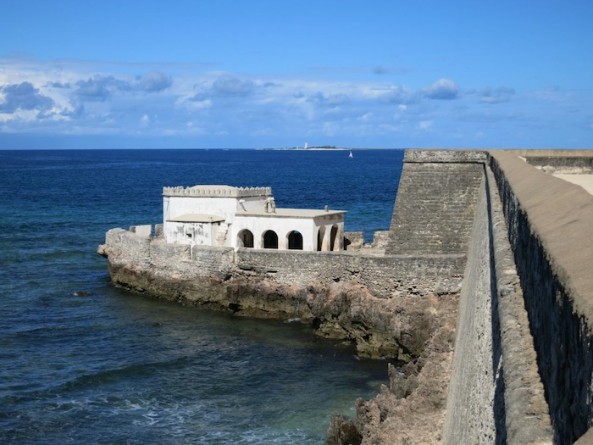
The Capela de Nossa Senhora do Baluarte, built in 1522, perches on an outcropping of Ilha de Moçambique.
What to do on Ilha de Moçambique
This tiny island – measuring three kilometers in length and only 600 metres across at its widest point – provides no shortage of things to do. Whether strolling through cobbled streets and snapping photos of colonial ruins, chartering a dhow (traditional sailboat) for a trip to surrounding beaches and islands, visiting the impressive Palace Museum at the Palace of Sao Paulo, or finally making the rounds of Ilha de Moçambique’s impressive fortresses, you won’t struggle to keep busy. At the end of a day of sight-seeing, make sure to find a spot by the beach for a drink while enjoying the sunset over the ocean.
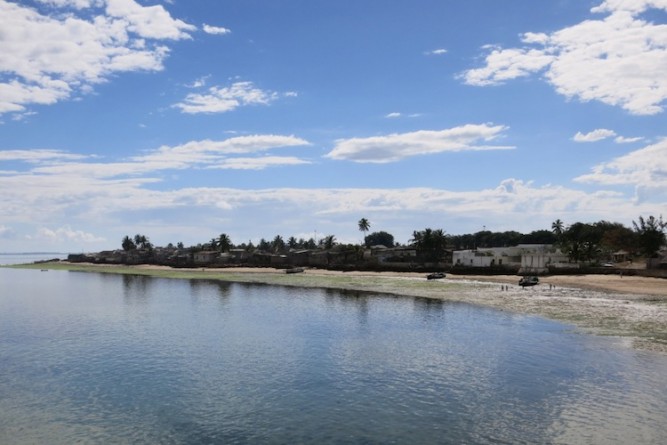
The beach coastline of Ilha de Moçambique is well worth a stroll.
Where to stay in Ilha de Moçambique
Ilha de Moçambique provides an abundance of great places to stay, no matter your budget. I enjoyed several nights at Patio dos Quintalinhos, where a private room was a not-too-pricey splurge from my backpacker’s budget. I spent several lazy afternoons by the pool or on the rooftop terrace, enjoying a view over the fishing beach.
Ruby Backpackers has an equally pleasant rooftop for enjoying the hot Mozambique sun, as well as a friendly bar and super comfy backpacker dorms.
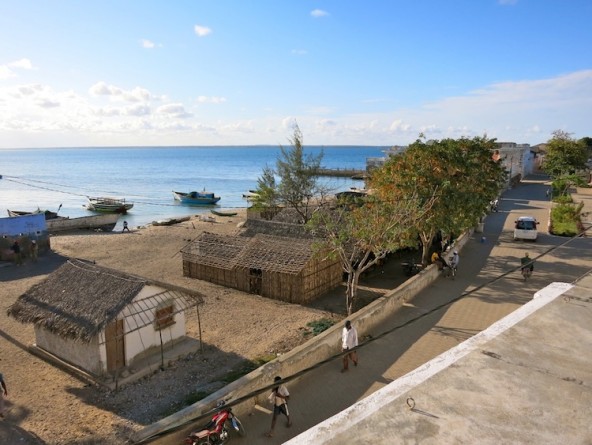
Nothing beats a rooftop view of ocean and sand.
Where to eat in Ilha de Moçambique
Luckily Ilha de Moçambique has a wide range of restaurants to help you taste your way through Getaway’s list of the 10 best things to eat and drink in Mozambique. Café Central was the latest addition to the island’s restaurant map in August 2013; located on the main street across from Books & Bottles and the Missonga Craft Shop, it has a fantastic rooftop view to accompany a varied menu.
After making my best effort at tasting every local dish possible, however, my vote goes to Restaurante Reliquias for the tenderest prawns I’ve ever eaten. I was also very pleased with the Matapa I ordered from the restaurant at O Escondidinho Hotel.
Getting to Ilha de Moçambique
Most visitors to Ilha de Moçambique will stop in Nampula the night before (find Nampula accommodation here). Several direct buses and chapas run from Nampula to Ilha de Moçambique every morning and take approximately 3 hours; it’s also an easy 170km drive in your own car. After you reach the end of the highway at Lumbo on the mainland, cross a well-maintained 3.5km bridge to Ilha de Moçambique.
Visit the helpful Ilha de Moçambique website for more information on restaurants and accommodations.

